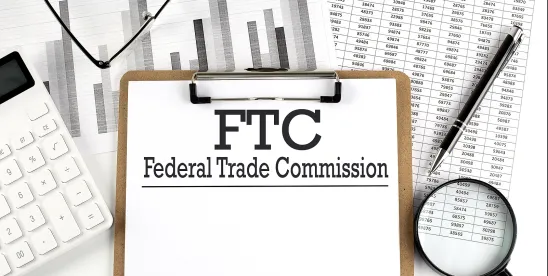On August 14, 2024, the Federal Trade Commission (FTC or Commission) announced its Final Trade Regulation Rule on the Use of Consumer Reviews and Testimonials (Final Rule) to rein in what it believes is the widespread practice of using fake reviews and testimonials to boost sales of products or services. The long-awaited Final Rule was developed under the provisions of the Magnuson-Moss Warranty Act. Thus, it is the culmination of a two-year process that started in November 2022 with the publication of an Advance Notice of Proposed Rulemaking (ANPR), followed by a Notice of Proposed Rulemaking (NPRM) in July 2023, and a February 2024 informal public hearing. The Final Rule reflects some changes from the proposed rule set out in the NPRM, including clarifications and limitations that were based on feedback received during the public comment period. For example, a previously proposed section addressing reuse of consumer reviews written for one product, so that the reviews appear written for a “substantially different product,” was omitted from the Final Rule following multiple comments, including a comment that raised a disputed issue of material fact. The Commission decided not to finalize this provision at this time and reserved it for potential future rulemaking.
Key provisions of the Final Rule include prohibitions on:
- Selling or purchasing fake consumer reviews or testimonials. Businesses are barred from writing or selling reviews and testimonials from someone who does not exist (such as AI-generated fake reviews) or who did not have actual experience with the business or its products or services, or reviews and testimonials that misrepresent the reviewers’ experience. Businesses are also barred from disseminating such reviews and testimonials when they knew or should have known about the misrepresentation.
- Buying or providing other compensation for consumer reviews that express a certain sentiment (positive or negative).
- Insider reviews or testimonials that do not clearly disclose material relationships. Businesses cannot procure reviews and testimonials by company insiders or their immediate relatives without clear and conspicuous disclosures.
- Deceptively claiming that company-controlled review websites are providing independent reviews or testimonials.
- Illegally suppressing reviews using unfounded or groundless legal threats, physical threats, intimidation, or false public accusations to prevent or remove a negative consumer review.
- Selling or purchasing fake indicators of social media influence, such as followers or views generated by bots.
Needed disclosures must be “clear and conspicuous,” meaning easily noticeable (i.e., difficult to miss) and easily understandable by ordinary consumers. The rule provides specific examples in this regard. For example, an online disclosure is not clear and conspicuous if a consumer must take any action, such as clicking on a hyperlink or hovering over an icon, to see it.
Violations of the Final Rule can result in civil penalties of $51,744 per violation.
The Final Rule will become effective 60 days following publication in the Federal Register, which has not yet been posted as of this writing. Once the new rule takes effect, businesses should expect that the FTC will enforce it with the same vigor it has shown in pursuing deceptive reviews/testimonials under Section 5 of the FTC Act.
Reviews and testimonials are key to almost all businesses today because they influence consumer purchasing decisions. Certainly, platforms and online sellers often rely heavily on testimonials and reviews. While commenters raised a variety of questions about details of the proposed rule last year, many supported the rule in general, as fake reviews and testimonials can significantly harm sales and result in a loss of consumer confidence. It will be important for businesses to familiarize themselves thoroughly with the Final Rule and with the FTC’s updated Guides Concerning the Use of Endorsements and Testimonials in Advertising (Endorsement Guides), as both include important nuances that have practical operational significance. Given the short period of time before the Final Rule becomes effective, many businesses are starting to work now on plans for updating policies and procedures and training staff on compliance requirements so they are prepared when it takes effect.





 />i
/>i

